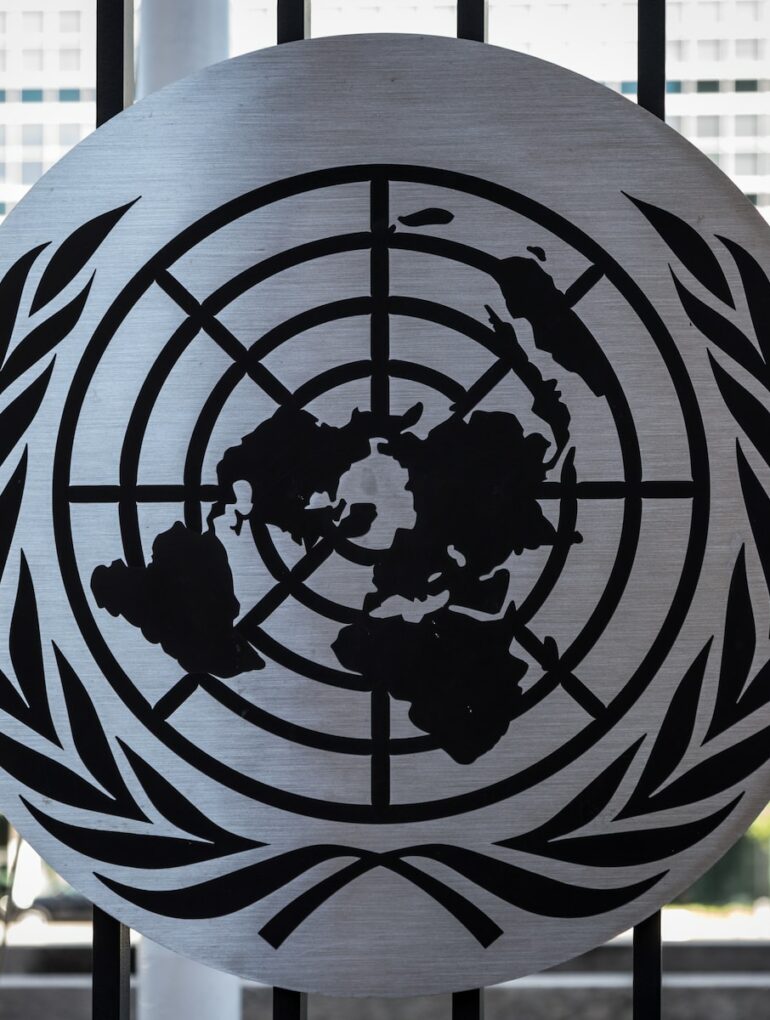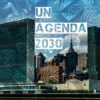Whitney Webb and Mark Goodwin
The TFTC podcast episode discusses the Green+ program’s use of satellite surveillance in carbon markets, raising concerns about privacy, and the push towards digital authoritarianism. www.tftc.io
The latest episode of TFTC dives into the weaponization of carbon credits, surveillance threats, and the intersection of bitcoin and sidechain technologies. Guests Whitney and Mark co-authored an investigative piece uncovering the „Green+“ program, an initiative aimed at creating a new carbon credit system by leveraging satellite surveillance.
The primary focus of the conversation was on the broader implications of financializing nature and the role of surveillance in carbon markets. The discussion pointed to the influence of influential figures like Mark Carney, who are reshaping financial governance and development systems to support involuntary carbon markets and commodity tokenization.
A key aspect of the Green+ program involves the surveillance of carbon sequestration areas via satellites operated by companies like Satellogic, which have deep ties to US intelligence. With the intent to surveil and potentially regulate individual carbon emissions from space, the program raises concerns about privacy and the commodification of natural resources.
Moreover, the episode explored the potential repercussions of integrating carbon markets with the bitcoin blockchain through sidechains like Rootstock (RSK), which could transform bitcoin into a tool for asset storage, potentially aligning with the interests of Wall Street rather than maintaining its decentralized ethos.
Best Quotes
- „We must participate or we will all die is essentially what they’re arguing. Right, but it’s participating in their grift.“ – Whitney Webb
- „It’s a way to, you know, force behavior by, you know, making energy money, essentially, among other things.“ – Whitney Webb
- „The revolution is an internal thing. It’s a singular thing… The human spirit is a beautiful, wonderful thing, and it can’t be captured by a blockchain run by some federated key signers somewhere.“ – Mark Goodwin
- „Don’t let them… I don’t know. I mean, there’s so much stuff to say. I feel like I’ve already said it. Just, I guess, repeating. Don’t fall into the fear-based psyops.“ – Whitney Webb
- „Bitcoin is money. It’s not digital property. It’s digital property, but it is money, and it’s hard within bitcoin.“ – Marty
Conclusion
The episode illuminated an elaborate scheme to transform carbon markets through technologies that may lead to increased surveillance and financial control. The involvement of intelligence-linked satellite firms and the integration of sidechains like RSK with bitcoin could signify a departure from bitcoin’s original purpose, potentially serving the agendas of Wall Street giants.
The overarching message was a call to action for individuals to reclaim agency, resist fear tactics, and maintain the revolutionary ethos of bitcoin as a decentralized currency. The conversation highlighted the importance of self-reliance, skepticism towards seemingly dichotomous choices presented by media and authorities, and the power of the human spirit to overcome orchestrated control.
The episode serves as a stark reminder that while technological advancements hold immense potential, they also come with the responsibility to safeguard personal freedoms and resist efforts that could lead to digital authoritarianism.
Whitney Webb and Iain Davis to discuss their new series on Sustainable Development Goals. They also discuss the Rockefellers being behind the UN, the destruction of Central America’s environment under the guise of sustainability and how to dismantle climate narratives.
Follow Whitney on Twitter: https://twitter.com/_whitneywebb
Whitney and Iain’s article on Sustainable Debt Slavery: https://t.co/nlDSSCBxcD
„Green“ plan to transform the global financial system: https://t.co/GcGupmRvCD
The Nature Conservancy Board of Directors: https://t.co/1m9dPjLD3d
Belize conserving their oceans through debt conversion: https://t.co/uB8JIyhb2A




